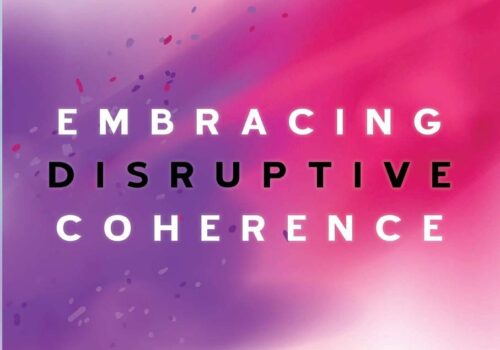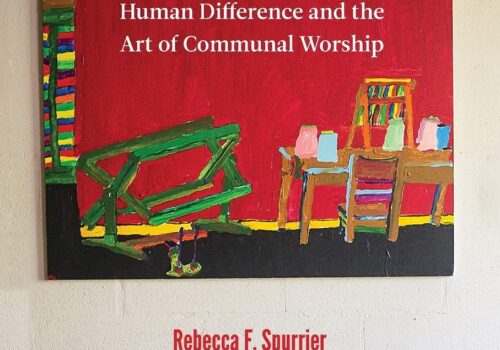Download PDF: Bischoff, Intensity and Sustainability
Organized and sponsored by the Concentration in Religious Practices and Practical Theology. Held in conjunction with the Candler School of Theology Fall Conference, “Re-envisioning Leadership for a Hope-filled Future.”
Candler School of Theology, Emory University
October 12-14, 2008
In popular consciousness, adolescence is a time of storm and stress, particularly when it comes to identity, religion, and sexuality. Those who have “made it through” their teens may give thanks that the intensity of youth is not sustained into adulthood, whereas others may long for the time when everything mattered so much and seek ways to sustain the passion of their younger days.
Those who minister with youth are not strangers to questions of intensity and sustainability. Youth directors journey with youth on intense mission trips and then wonder how to help youth sustain their fervor for justice once they return home. Scholars studying the religious lives of youth make proposals about how faith communities can better support and nourish the faith both of young people who face extraordinary situations such as war or abuse and of those who deal with more quotidian pressures to fit in and succeed. The Consultation on Youth in Religious Practices and Practical Theology gathered a diverse group of scholars, practitioners, and students to engage deeply with one another on issues of intensity and sustainability both in the lives of youth and in the religious traditions and practices with which youth interact.
A youth “speak out” opened the consultation on the first evening, with five youth from Atlanta churches and colleges sharing their experiences, voicing concerns facing youth, offering visions and dreams for their own futures and the future of the Christian church, and answering questions posed to them by consultation participants. Participants and youth then dined together, continuing this conversation in an informal setting. Beginning the consultation this way set an important tone, reminding us of the significance of being responsive listeners to the lived experiences of the young people with whom we work.
After dinner, participants attended the opening keynote address of the Candler School of Theology Fall Conference offered by Marion Wright Edelman, president of the Children’s Defense Fund. The first evening concluded with a check-in session, where participants were introduced to Practical Matters and to each other. The sharing of personal narratives about what had brought us to this consultation provided a foundation for collaboration and understanding for the rest of our work together.
The second day opened with graduate student presentations in three small groups organized around shared loci of interest. Instead of presenting finished papers, students shared ideas in progress and received formative feedback from practitioners, senior scholars, and other students. Presentations were made in the following groups:
Gender, Embodiment, and Healing:
- Sybrina Atwaters on the occurrence of identity formation, social change, and religious practices via animation technologies and in virtual communities – unbound by traditional and hierarchical institutional systems;
- Claire Bischoff on the unsustainable perfection demanded of young women by beauty culture and potential Christian theological responses; and
- Melanie Dobson-Hughes on “In God’s Image,” a retreat she developed for youth on body image, hope, and healing.
Narrative and Peacemaking:
- Chris Dorsey on promoting a healthy transition from youth ministry to campus ministry;
- Samira Mehta on the experiences of children of interfaith marriages, examined through the lens of memoirs and advice manuals; and
- Rich Voelz on cultivating homiletic sensibilities that promote matching intensities among the homiletic guild, professional youth ministers, preachers, and youth.
Urban Youth and Racial and Ethnic Diversity:
- Josh Borkin and Jean Carlos Artiles on spiritual learning and development fostered through Youth Empowerment Leadership Community, a non-sectarian afterschool program;
- Letitia Campbell on pedagogical strategies for encouraging powerful and transformative questioning, particularly in the “Faith, Ethics, and the City” component of the Youth Theological Initiative; and
- Sarah Poole on how the school-to-prison pipeline shapes the moral and spiritual identity of youth and how religious communities might respond to this reality.
Small group work was followed by a scholars’ panel organized by Dori Baker of the Calling Congregations project sponsored by the Fund for Theological Education. Baker and panelists Fred Edie, Joyce Mercer, Katherine Turpin, and David White discussed the metaphor of congregations as “Greenhouses of Hope” and offered practices that congregations may use to call forth youthful leaders.
Participants and these panelists then enjoyed a working lunch in which they discussed the opportunities and challenges of summer intensive experiences for youth (e.g. Lilly-funded programs for youth). Central topics of concern were financial sustainability, how to study the long-term effects of these intense programs, and practices that might sustain the transformative religious experience of youth who participate in these programs.
The rest of the day involved attending concurrent sessions at the Candler School of Theology Fall Conference; hearing The Rev. Richard Cizik, head of the Office of Government Affairs for the National Association of Evangelicals, address the attendees of the fall banquet; and gathering to name the themes raised in our conversations. Participants were most enthusiastic about how a consultation that gathers senior scholars, practitioners, and graduate students enabled us to address the depth and breadth of our topics and promoted a cross-fertilization of ideas that few had experienced before. We also noted a lack of pretension among participants, which created space for passionate talk in a setting where we could receive feedback from conversation partners with whom we may not regularly be in dialogue. Questions were also raised about how to publish in order to reach the constituencies to which we are responsible – not only other scholars and practitioners, but also church governing bodies and youth themselves.
On the final day of the consultation, we listened to Eboo Patel, executive director of Interfaith Youth Core, discuss how young people doing service work together are able to build mutual respect across religious differences. We then met in our small groups from the previous day, this time with the practitioners presenting case studies of programs, religious practices, and ministry with youth. Presenters included:
- Joy Cotzias of Project Burning Bush on promoting vocational discernment among high school youth;
- Michael D. James on Critical Faith, the pedagogical and theological approach of Represent 2 Witness, a leadership program for young Asian and Pacific Islanders and other young people of color;
- Aaron Klink, psychiatric chaplain at the Veterans Administration Medical Center in Durham, NC, on how congregations might engage youth and young adults suffering from terminal illness and trauma;
- Linda Morgan-Clement on fostering interfaith dialogue among youth and young adults in the context of college campus ministry at Wooster College;
- Kyle Schreiner on Peacebuilders Initiative, a program that prepares Catholic youth to work for peace and reconciliation through an intensive summer program, mentoring, and a peace project; and
- Heather Wallace on sustaining the program Serving Christ in the World, without sacrificing aspects that are integral to its quality. Serving Christ in the World is an interfaith and cross-cultural immersion program for youth run through the Lutheran School of Theology at Chicago.
The consultation closed with a final plenary session in which we voiced new learning and evaluated the consultation itself. Our work in the consultation reminded us of the varied textures of challenges youth face as well as myriad ways that youth create community and live their spirituality even when traditional faith communities do not respond to their lived experiences. It prompted us to consider how we can continue to move beyond the images of middle class majority culture that shape many youth ministry resources and how we could extend the conversation on intensity and sustainability beyond the largely Christian focus it took in this consultation. The consultation affirmed for us the importance of creating safe spaces where youth can ask difficult questions, share their personal stories, encounter religious traditions, and engage in religious practices with each other and in the presence of trusted adults who listen without judgment. We were also challenged to think more about how the lives of the youth with whom we work inform our theological categories, moving toward a fulsome practical theology of adolescence. Finally, we left thankful for an interdisciplinary collaboration in practical theology that helped us engage both our own research and practical questions from new vantage points.
Claire Bischoff, PhD Candidate
Graduate Division of Religion, Emory University




